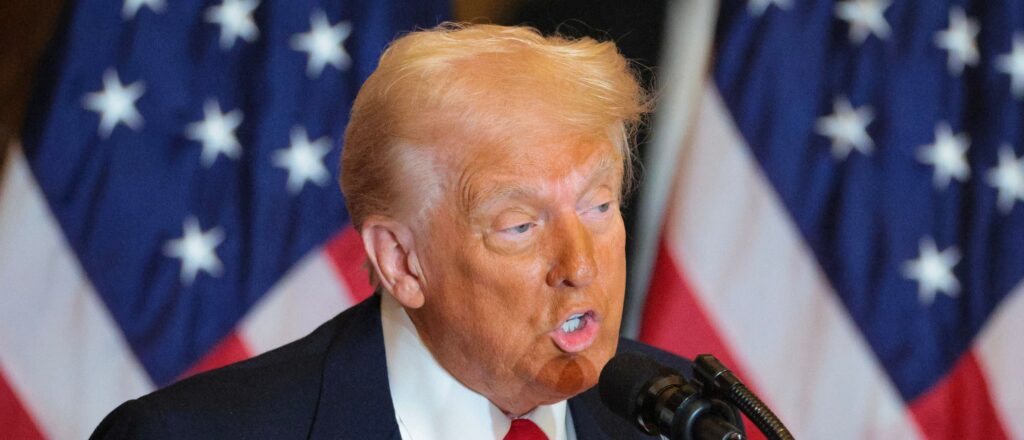China responded to President Donald Trump’s tariffs on all Chinese imports by upping their own, but experts told the Daily Caller News Foundation that they’re not likely to impact America as much as the Chinese Communist Party (CCP) would hope.
China instituted 15% tariffs on coal and liquefied natural gas (LNG) and a 10% tariff on crude oil, agricultural machinery and large-engine cars as a reaction to Trump’s blanket 10% tariff on all goods. However, China’s move is unlikely to affect U.S. consumers or producers in any significant way, since the U.S. can go elsewhere for the goods affected, experts told the DCNF.
“Chinese tariffs on US coal, gas, and oil are unlikely to have a significant impact or a negative impact on the US economy,” John Lee, senior fellow at the Hudson Institute, told the DCNF. “These are commodities which the US can sell to other markets quite easily. For example, the US is the world’s largest exporter of LNG and can sell more to the UK and EU. Chinese tariffs on agricultural machinery, trucks and large cars are also not overly significant because China is not a major buyer of these American products.” (RELATED: Charles Payne Says ‘Fear Mongering’ Over Market Must Stop, Points To How US Has Thrived From Tariffs)
Trump’s main reason for the tariffs is the “extraordinary threat posed by illegal aliens and drugs, including deadly fentanyl” which “constitutes a national emergency,” according to the White House. The fentanyl trade was also the main influence for the decision to tariff Mexico and Canada.
China supplies precursor chemicals used in the manufacturing of fentanyl, and often fails to prosecute those responsible in their own borders. Much of these precursor chemicals along with fentanyl come through the southern border, killing thousands of Americans every year.
U.S. President Donald Trump speaks during the National Prayer Breakfast in Statuary Hall at the U.S. Capitol on February 06, 2025 in Washington, DC. (Photo by Kayla Bartkowski/Getty Images)
China imported $165 billion worth of goods from the United States in 2023, down from an all-time high in 2021 of $180 billion, according to TradingEconomics data. Of Chinese imports, most were “mineral fuels, oils, [and] distillation products,” which made up $22.44 billion of imports.
The U.S. does not export much natural gas to China, with the nation only making up around 2.3% of the U.S.’ total natural gas exports in 2023, according to U.S. Energy Information Administration (EIA) data. The same can be said of coal exports, with China only importing 6% of total American coal exports in 2023.
“Overall, if there is to be a trade war, the US has a lot more options and weapons than does China,” Lee told the DCNF.
China launched a complaint Tuesday with the World Trade Organization (WTO) over Trump’s tariffs, claiming that the measures were “discriminatory” and illegal under the WTO’s rules.
“The U.S.’s unilateral tariff increase seriously violates the rules of the World Trade Organization,” China’s State Council Tariff Commission said in a statement. “It is not only unhelpful in solving its own problems, but also damages normal economic and trade cooperation between China and the U.S.”
In 60 days, if China and the U.S. do not come to a resolution, the WTO can convene a three-judge dispute settlement panel to adjudicate the matter. However, the U.S. has actively blocked appointments to this panel, which may stymie China’s hopes of using the international organization to resolve the matter.
“I think part of what you’re seeing here is that these retaliatory tariffs from China aren’t particularly on a lot of things that we already trade with them on, they’re on things that we’ve been trying to trade with them on to get their industry dependent on inputs from the United States,” Richard Stern, director of the Grover M. Hermann Center for the Federal Budget at the Heritage Foundation, told the DCNF.
Trump has so far used tariffs to strong-arm Canada and Mexico into concessions that address the ongoing southern border crisis, with Canada pledging to help secure the northern border while Mexico is set to deploy 10,000 National Guard troops to the border.
Stern thinks that Trump may use his tariffs on China in a similar fashion to his deals with the U.S.’ two neighbors.
“I think that broader things are on the table,” Stern told the DCNF. “There’s an enormous amount of intellectual property theft that China engages in from US companies that operate in China. The other thing, of course, is TikTok, right? I do suspect some of these negotiations at least somewhat have to do with divesting in TikTok and the hardball politics we’re playing over that.”
China is a frequent thief of intellectual property from the U.S., with an estimated $225 to $600 billion in annual losses from counterfeit goods, software, and trade secret theft, according to the Federal Bureau of Investigation in 2019.
The Chinese Embassy did not respond to the DCNF’s request for comment.
All content created by the Daily Caller News Foundation, an independent and nonpartisan newswire service, is available without charge to any legitimate news publisher that can provide a large audience. All republished articles must include our logo, our reporter’s byline and their DCNF affiliation. For any questions about our guidelines or partnering with us, please contact licensing@dailycallernewsfoundation.org.


